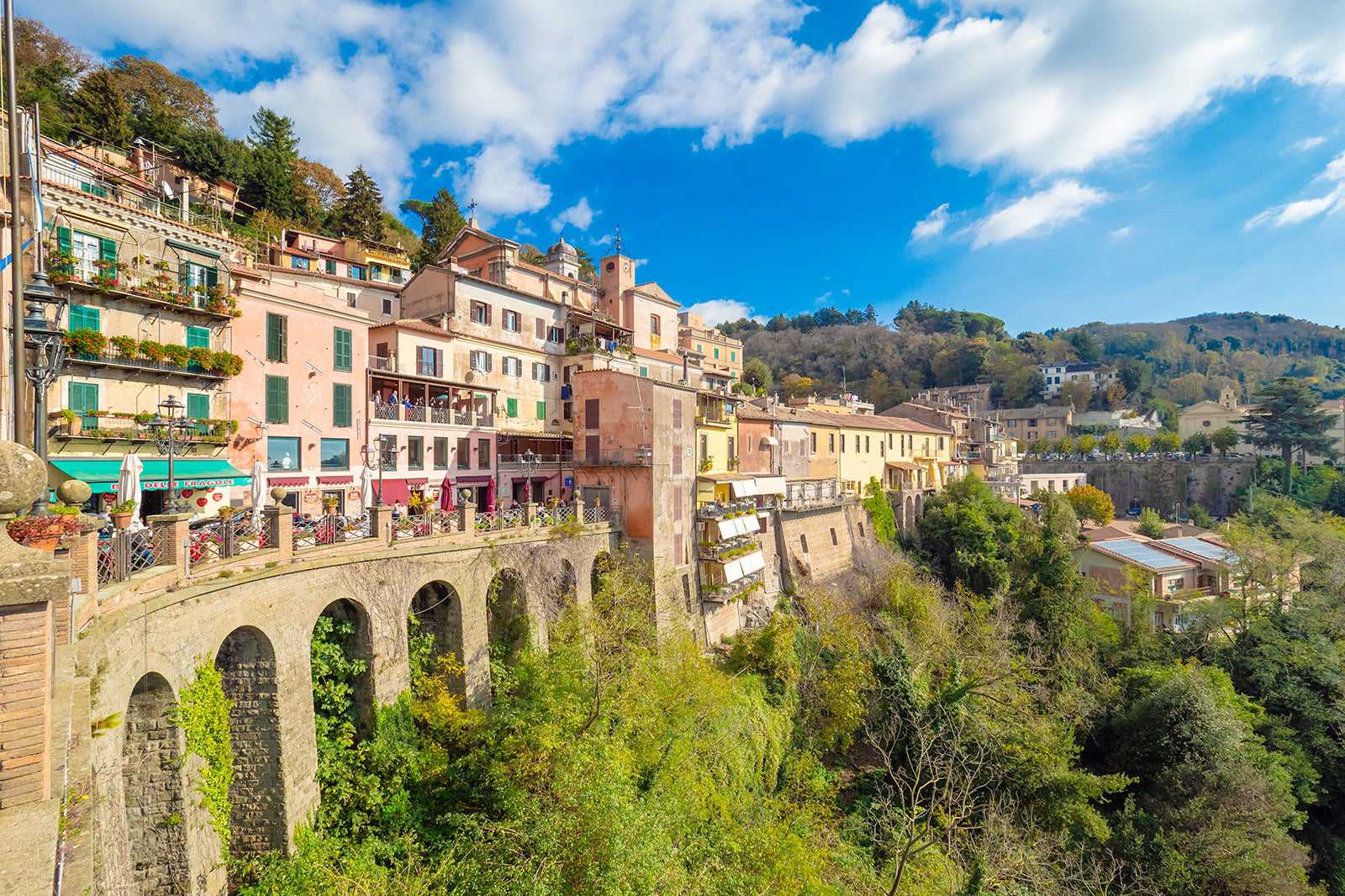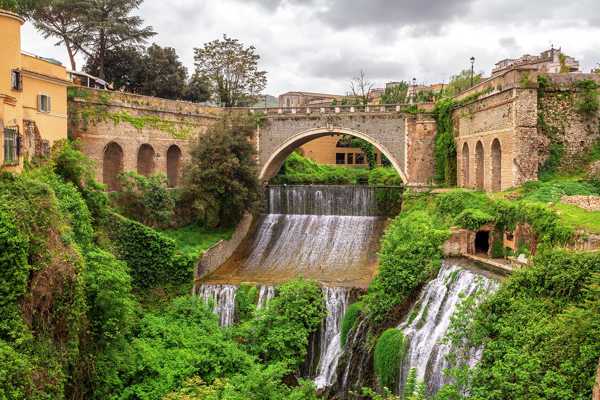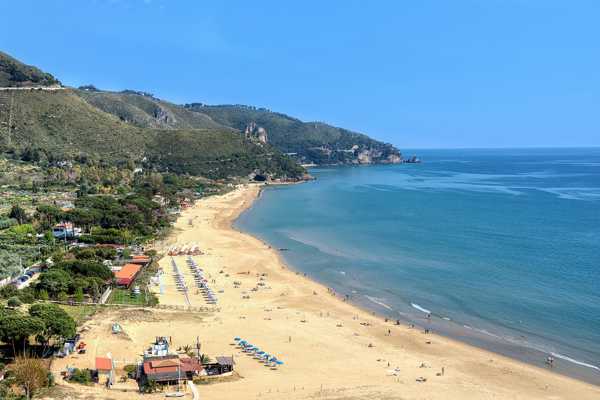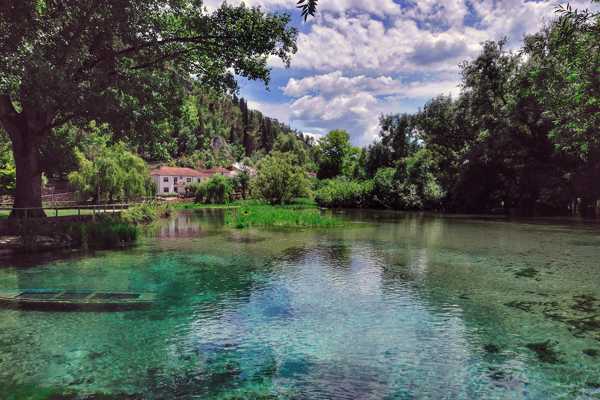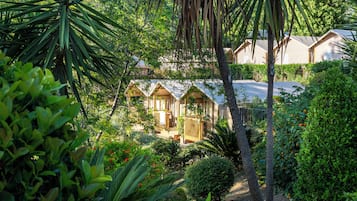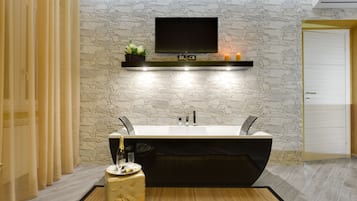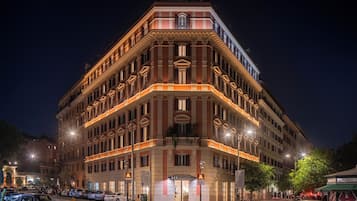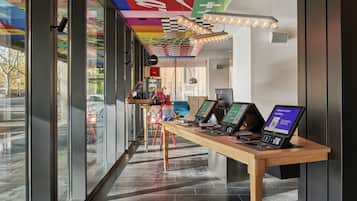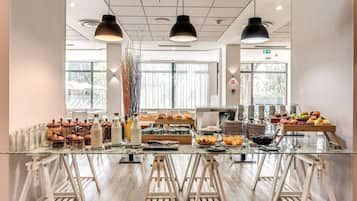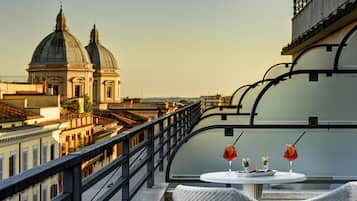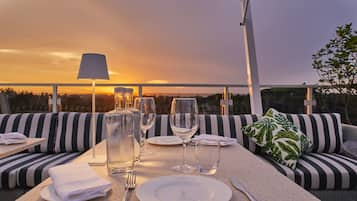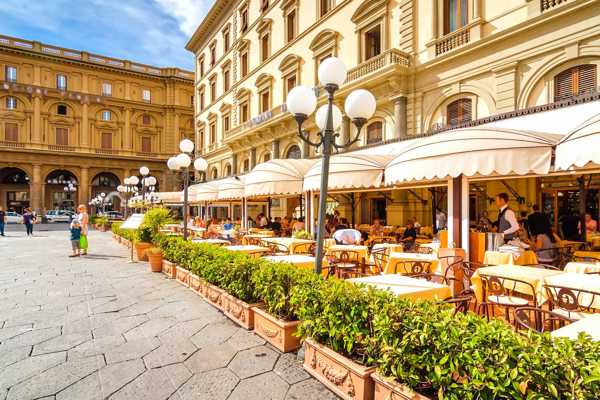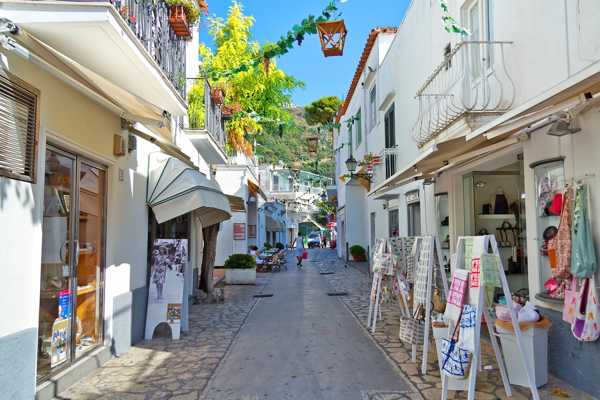Lazio isn't only home to the Città Eterna (Eternal City) – the backcountry is dotted with medieval villages, fortresses and ancient palaces immersed in the colours and aromas of nature. Treasures can be found in little Renaissance or Romanesque churches along the ancient roads, in Tuscia (Viterbo), Agro Falisco and Ciociaria.
A soothing stroll through Lazio's villages will satisfy your curiosity and appetite for culture, local traditions and slow living. In each of these quiet spots, you'll feel like you're walking through history, and they're a great choice for lovers of art, local cuisine and the legacy of the past. Come and discover the Lazio area: here are 13 dreamy villages in Lazio to visit during your stay.
- 1
Subiaco
See where the first Benedictine monastery was built
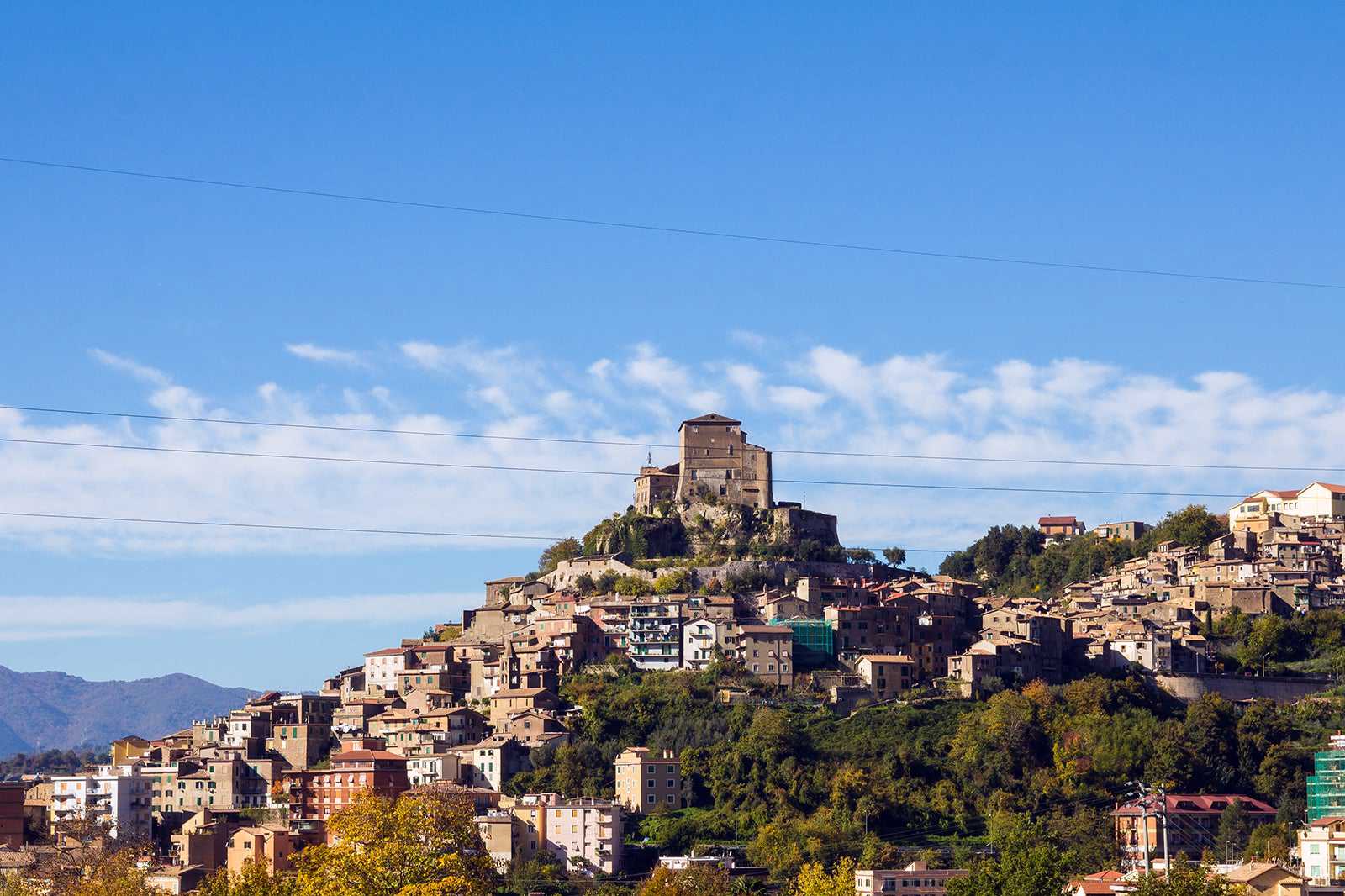
- Economía
- Familias
- Historia
- Fotos
Subiaco, a charming village near Rome, has medieval alleys and luscious wildlife. It’s home to the first Benedictine monastery, near the cave on Monte Taleo (Mount Taleo) where St Benedict lived as a hermit. The monastery's on a hill overlooking the Fiume Aniene (River Aniene) and is visited by pilgrims and hikers on the Cammino di San Benedetto (Way of St Benedict).
Starting from road 411 on Piazza del Campo, you can also see the nearby ruins of Villa di Nerone (Nero's Villa) and Cenobio di Santa Scolastica (Monastery of Saint Scholastica). Nestled in Parco dei Monti Simbruini (Park of Simbruini Mountains), with centuries-old beeches, oaks and maples, Subiaco's great for canoeing, rafting, kayaking, fishing, hiking and Nordic walking.
Ubicación: 00028 Subiaco, Italy
Mapa - 2
Anagni
Take a trip to a historic village with rich cultural heritage

- Economía
- Familias
- Historia
- Fotos
Anagni (aka ‘city of the popes’), in the Province of Frosinone, is the birthplace of 4 pontiffs. This trove of historic landmarks and architectural wonders houses Palazzo dei Papi (Palace of the Popes), Palazzo di Bonifacio VII (Boniface VIII Palace) and Cattedrale di Santa Maria (St Mary's Cathedral), the village's artistic jewel. This 12th-century landmark in Piazza Innocenzo III is a fine example of Romanesque-Gothic style.
Festival del Teatro Medievale e Rinascimentale (Festival of Medieval and Renaissance Theatre) takes place here yearly. As well as Cripta di San Magno (Crypt of Saint Magnus), Museo del Tesoro (Treasury Museum) and Palazzo Comunale (Town Hall), there’s the mysterious Casa Barnekow (Barnekow House), adorned with tombstones in different languages and frescoed with mystical-esoteric elements.
Ubicación: 03012 Anagni, Italy
Mapa - 3
Castel Gandolfo
Visit the Pope's summer residence on Lago di Albano
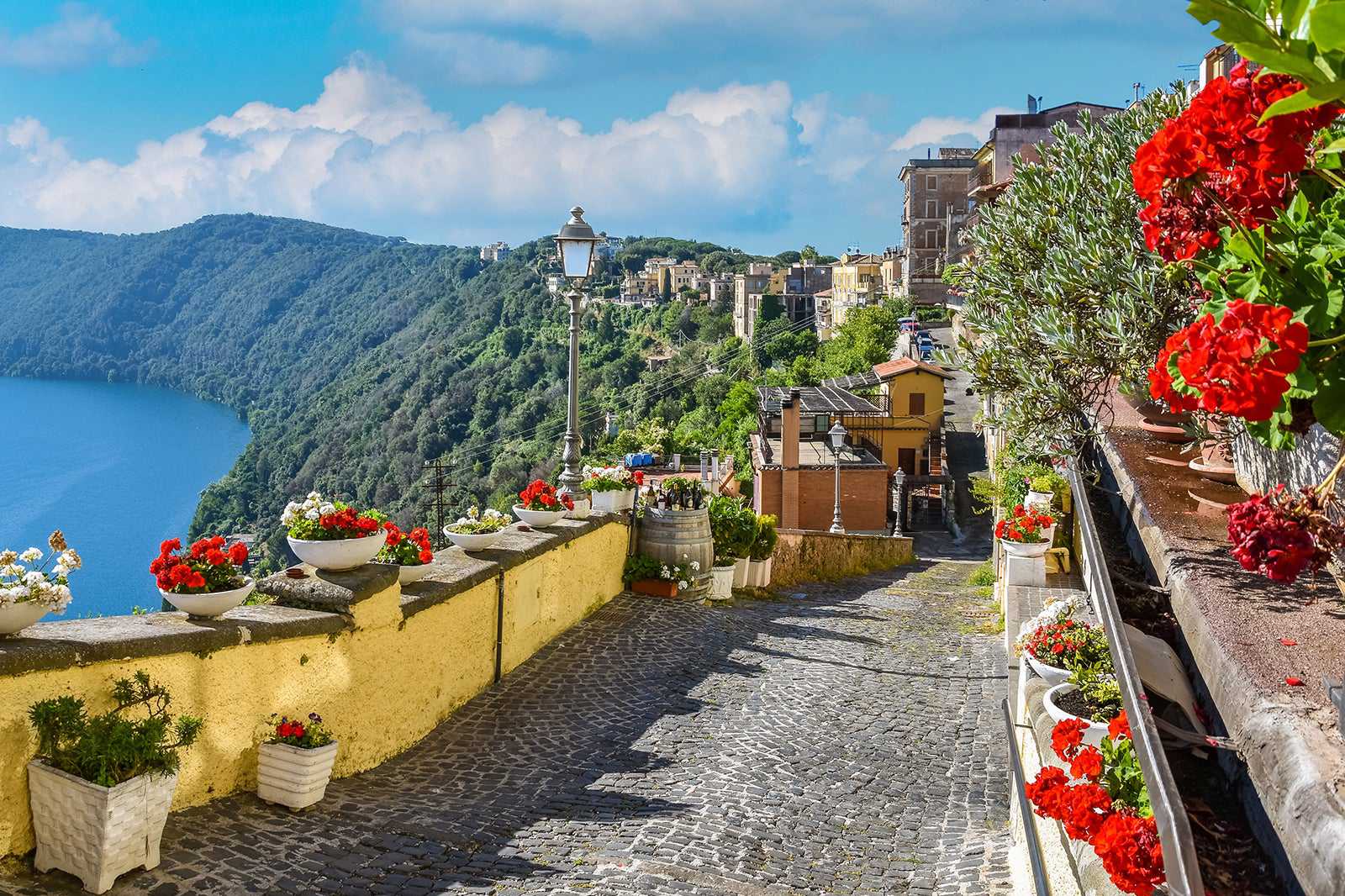
- Economía
- Familias
- Historia
- Fotos
Castel Gandolfo is the closest village to Rome in Lazio, boasting an evocative location on the shores of Lago di Albano (Lake Albano). It is well known for being the Pope's summer retreat. Palazzo Apostoli (Apostolic Palace), the pontiff's residence, is open to tourists, so make the most of it! The gardens are home to Fattoria Vaticana (Vatican Farm) and the remains of Villa di Domiziano (Villa of Domitian).
In the town's historic centre are works by great sculptors, including Bernini. He's responsible for the 17th-century fountain and Chiesa di San Tommaso (Church of St Thomas). An absolute must for nature-lovers is Parco Regionale dei Castelli Romani (Regional Park of Roman Castles), with its impressive historical, archaeological and landscaped trails.
Ubicación: 00040 Castel Gandolfo, Italy
Mapa - 4
Rocca di Papa
Take in a breathtaking view of Castelli Romani
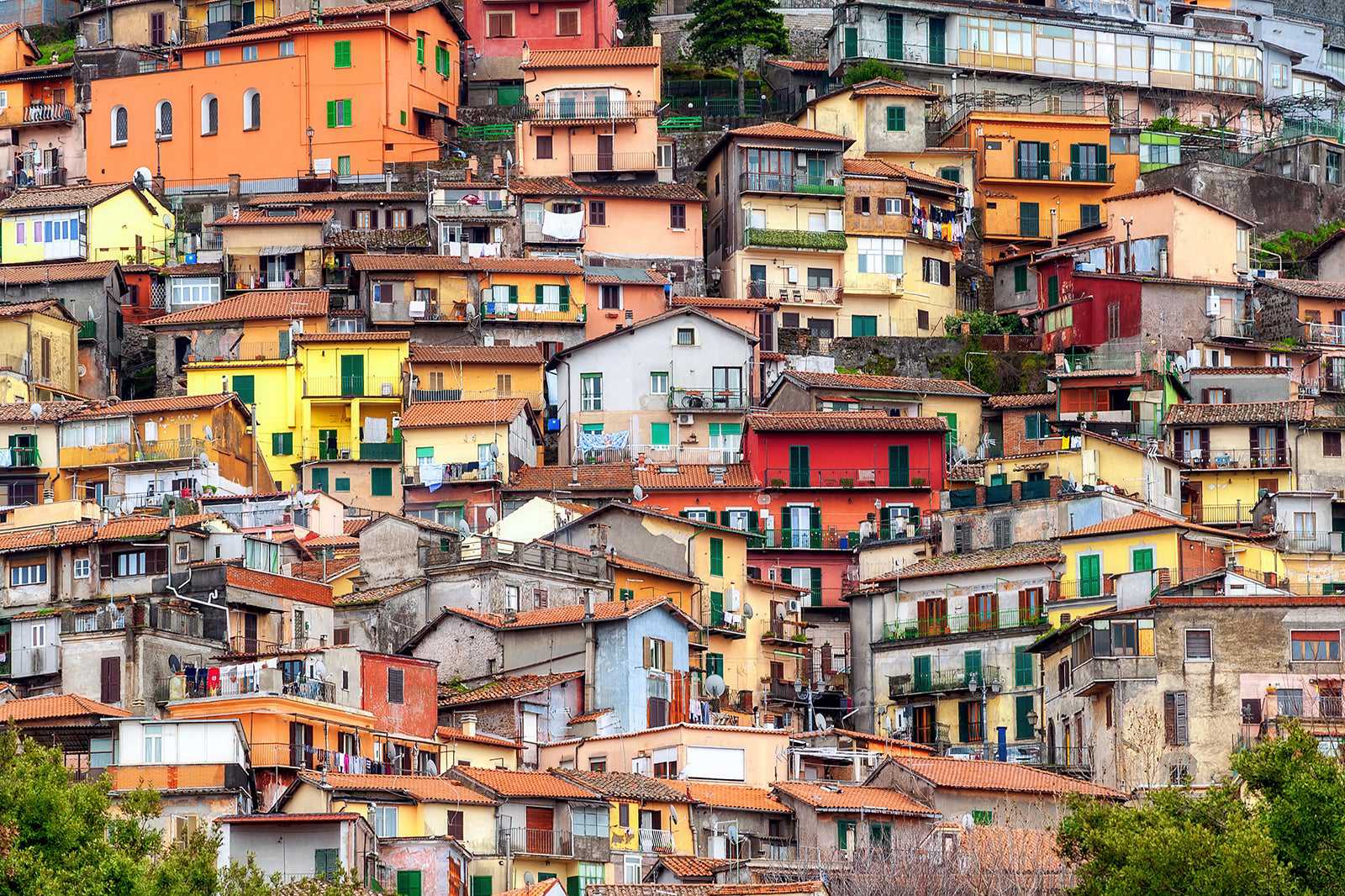
- Economía
- Familias
- Historia
- Fotos
Rocca di Papa is a classic hilltop village in the charming Castelli Romani (Roman Castles) area. The village is unique in that its medieval streets are decorated with dozens of murals, as has been the custom since the '80s. The village's atmosphere will make it feel like the past is coming alive and that you're being immersed in history.
As well as wandering the alleys and admiring the murals, we recommend a visit to Duomo dell’Assunta (Church of the Assunta), home to some valuable paintings, and Fortezza Pontificia (Papal Fortress) at the top of the village. If the weather's nice, join the locals for a picnic in Pratoni del Vivaro, a beautiful grassy plateau surrounded by the hills.
Ubicación: 00040 Rocca di Papa, Italy
Mapa - 5
Castel di Tora
Visit a captivating village overlooking Lago del Turano
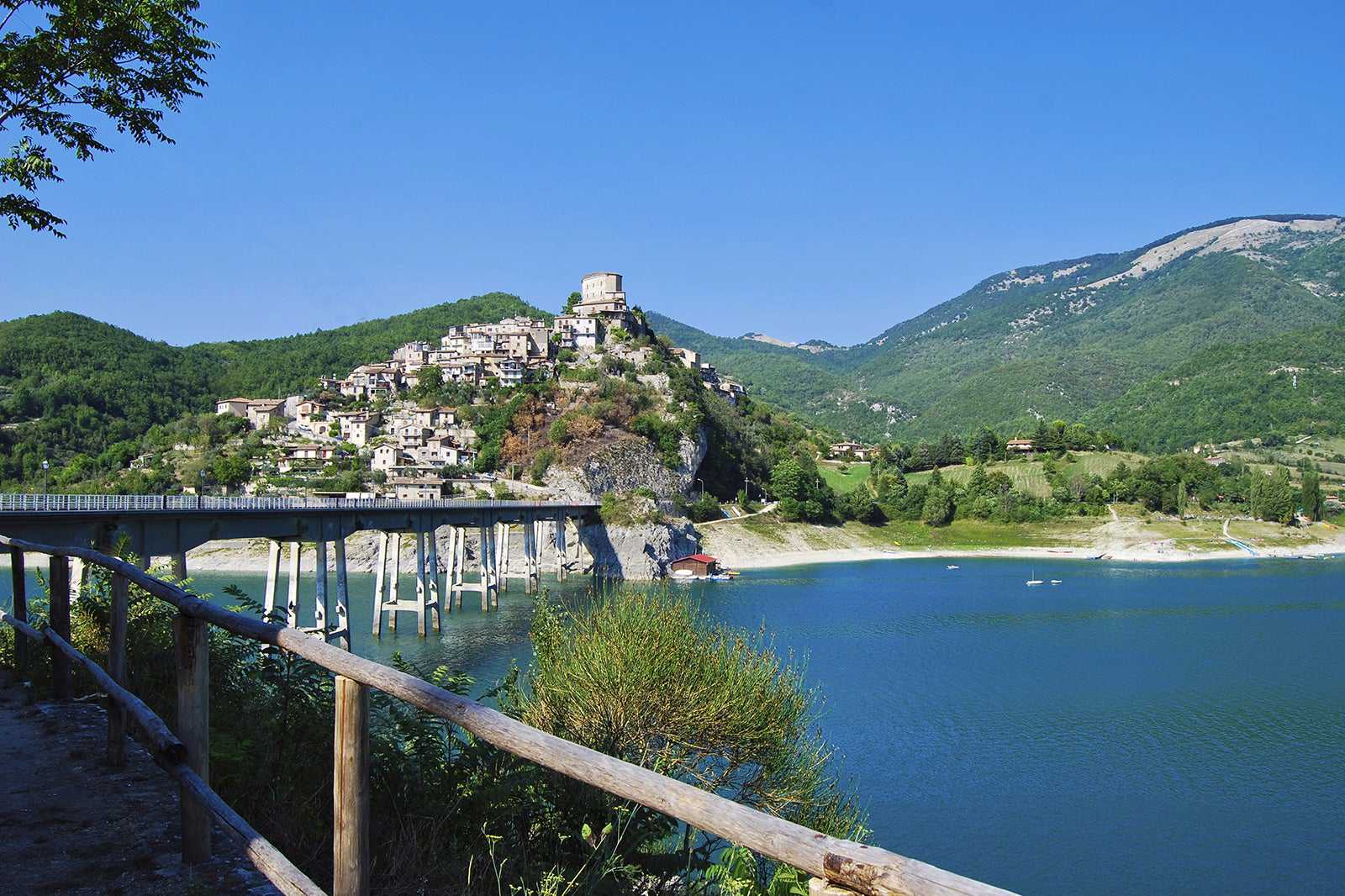
- Economía
- Familias
- Historia
- Fotos
Castel di Tora, framing the north-eastern coast of Lago del Turano (Lake Turano), is in the Riserva Naturale Monte Navegna e Monte Cervia (Mount Navegna and Cervia Nature Reserve). Upon arriving in this medieval village, you'll be struck by the houses teetering on the hill, the long bridge connecting it to the opposite shore of the lake and the alleys surrounded by arches, rocky stairways and walkways that take you back in time.
As well as the Chiesa di San Giovanni (Church of Saint John), known for its 6 altars, we recommend visiting the remains of the Borgo Medievale di Monte Antuni (Medieval Village of Monte Antuni) and the magnificent Cascata delle Vallocchie (Vallocchie Waterfall).
Ubicación: 02020 Castel di Tora, Italy
Mapa - 6
Sermoneta
Stroll through a small medieval town on the slopes of the Monti Lepini
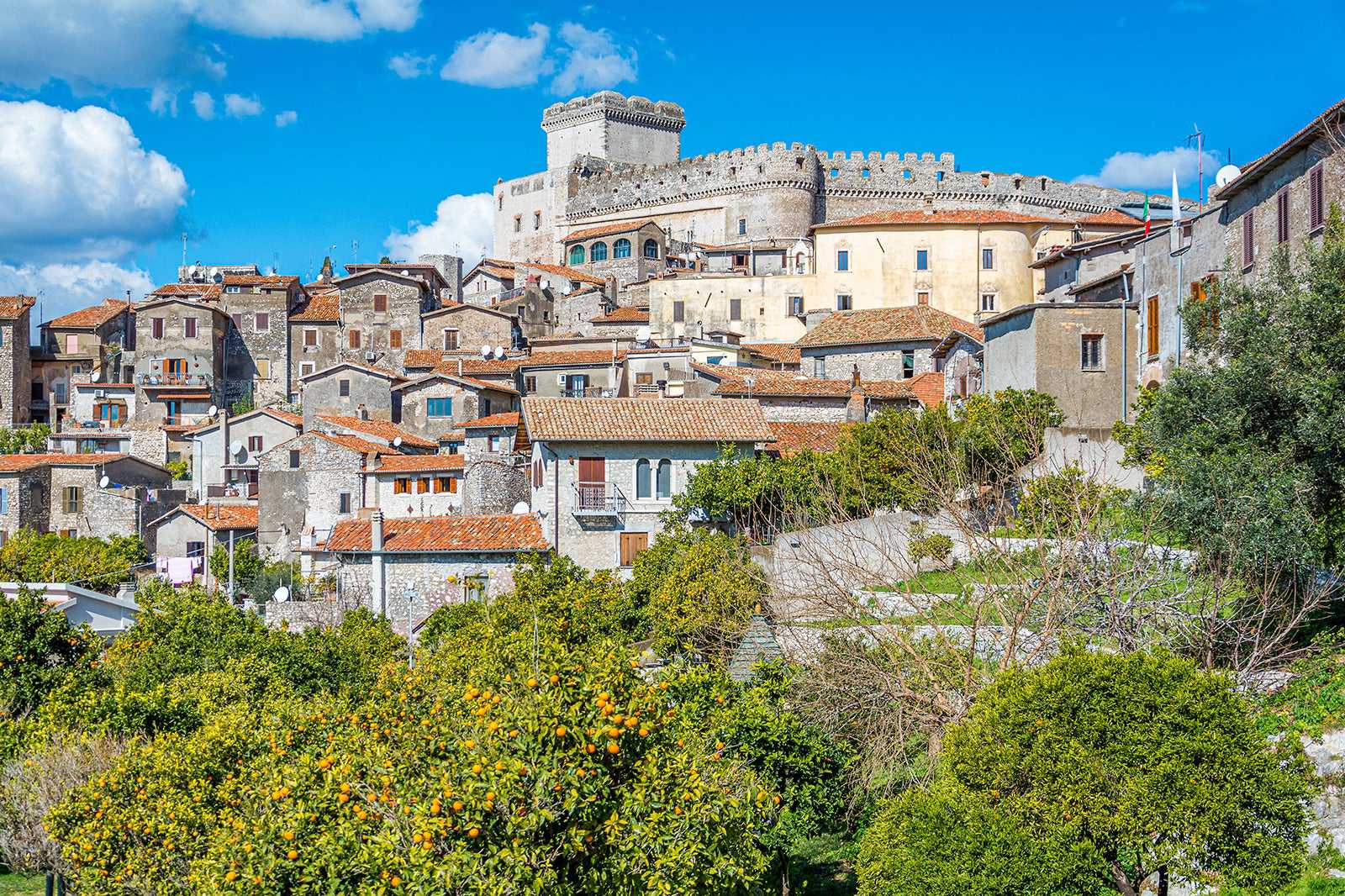
- Economía
- Familias
- Historia
- Fotos
Sermoneta, surrounded by the Monti Lipini (Lipini Mountains) and the Agro Pontino (Pontine Marshes) region, is a gem nestled amongst nature. Take an enchanting walk through the labyrinth of alleys in the historic centre, admiring the inlays and embellishments on the buildings, which include arches, gates, mullioned windows and coats of arms. Some of the ancient limestone houses feature arcades, while others resemble towers.
You'll feel like you've leaped back in time. The most famous landmarks are 13th-century Castello Caetani (Caetani Castle), Chiesa di Santa Maria Assunta (Church of Saint Mary of the Assumption) with its 24-metre bell tower and Loggia dei Mercanti (Merchants' Lodge), the beating heart of this village for centuries.
Ubicación: 04013 Sermoneta, Italy
Mapa - 7
Vitorchiano
Experience a village with an enchanting atmosphere
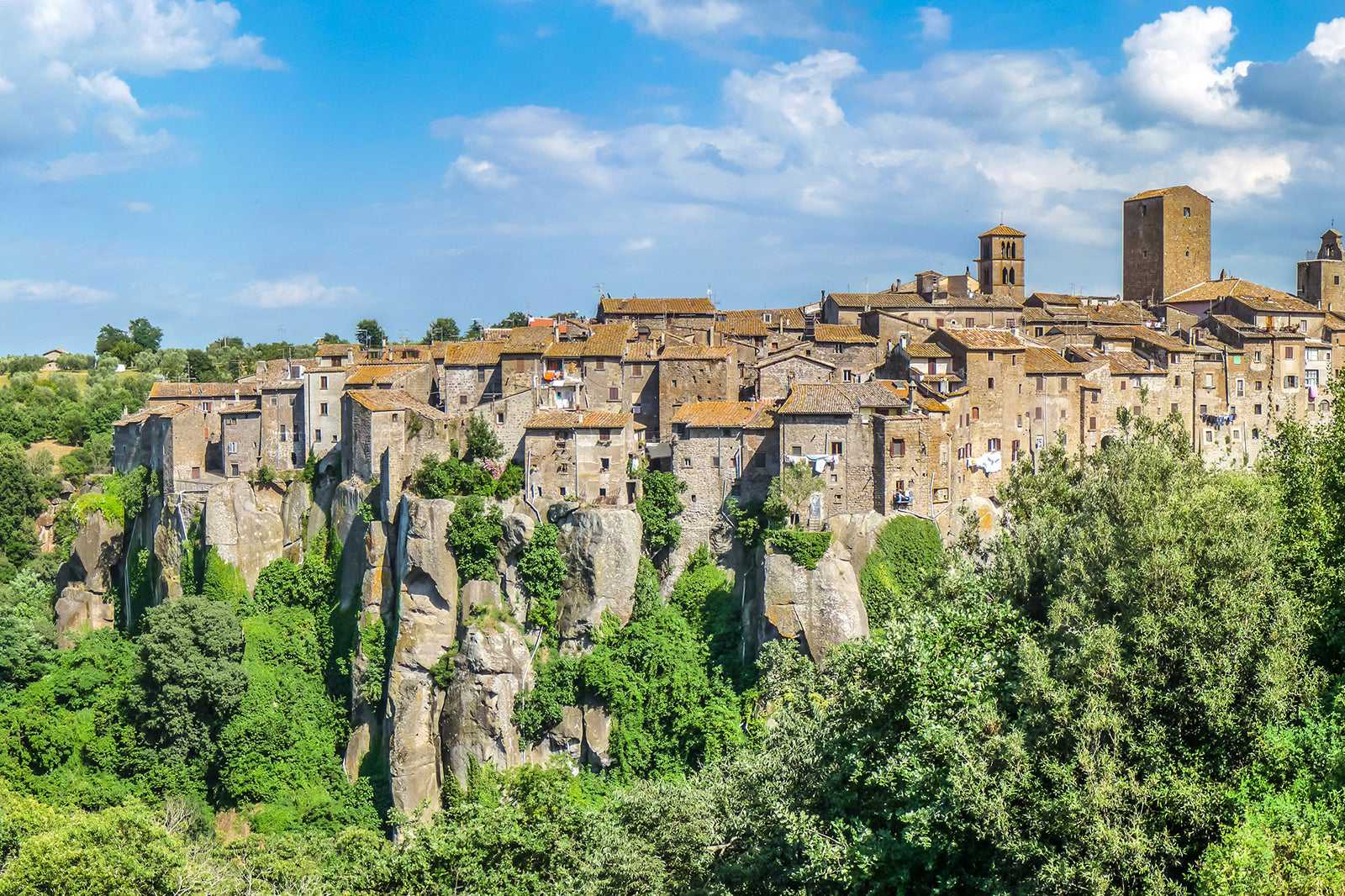
- Economía
- Familias
- Historia
- Fotos
Visit the little town of Vitorchiano, near Monti Cimini (Cimini Mountains), to discover Tuscia. Vitorchiano's huts, crenelated towers and bastions seem at one with the rock from which they rise, in a play of colours and splendour, rugged nature and ancient ruins. Absorb the tranquillity of the historic centre with its picturesque little squares, winding narrow alleys and stairways that run along the buildings' facades to their loggias.
The town's hub is Piazzale Umberto I, just beyond Porta Romana, where all visitors to the village go. Pause here to admire the Chiesa della Trinità (Church of the Holy Trinity), the former Chiesa di San Giovanni Battista (Church of St John the Baptist), and the 17th-century Fontana Pubblica (Public Fountain).
Ubicación: 01030 Vitorchiano, Italy
Mapa - 8
Nemi
Wander through the town of strawberries

- Economía
- Familias
- Historia
- Fotos
Nemi is the second-smallest village in Castelli Romani (Roman Castles), perched on a rocky outcrop that seems to soar over the lake below. It's appreciated by tourists for its landscape, climate, food and wine and popular Sagra delle Fragole (Strawberry Festival), which takes place in June. Palazzo Ruspoli (Ruspoli Palace), built in medieval times, is one of its most fascinating landmarks.
The village's main square opens up in front of its facade, as alleys snake their way to the top of the hill. Other places of interest include the 16th-century Chiesa Parrocchiale di Santa Maria del Pozzo (Santa Maria del Pozzo Parish Church) and the Santuario del Santissimo Crocifisso (Sanctuary of the Holy Crucifix).
Ubicación: 00040 Nemi, Italy
Mapa - 9
Castel San Pietro Romano
Take a trip to the romantic village used as a film set in the 50s
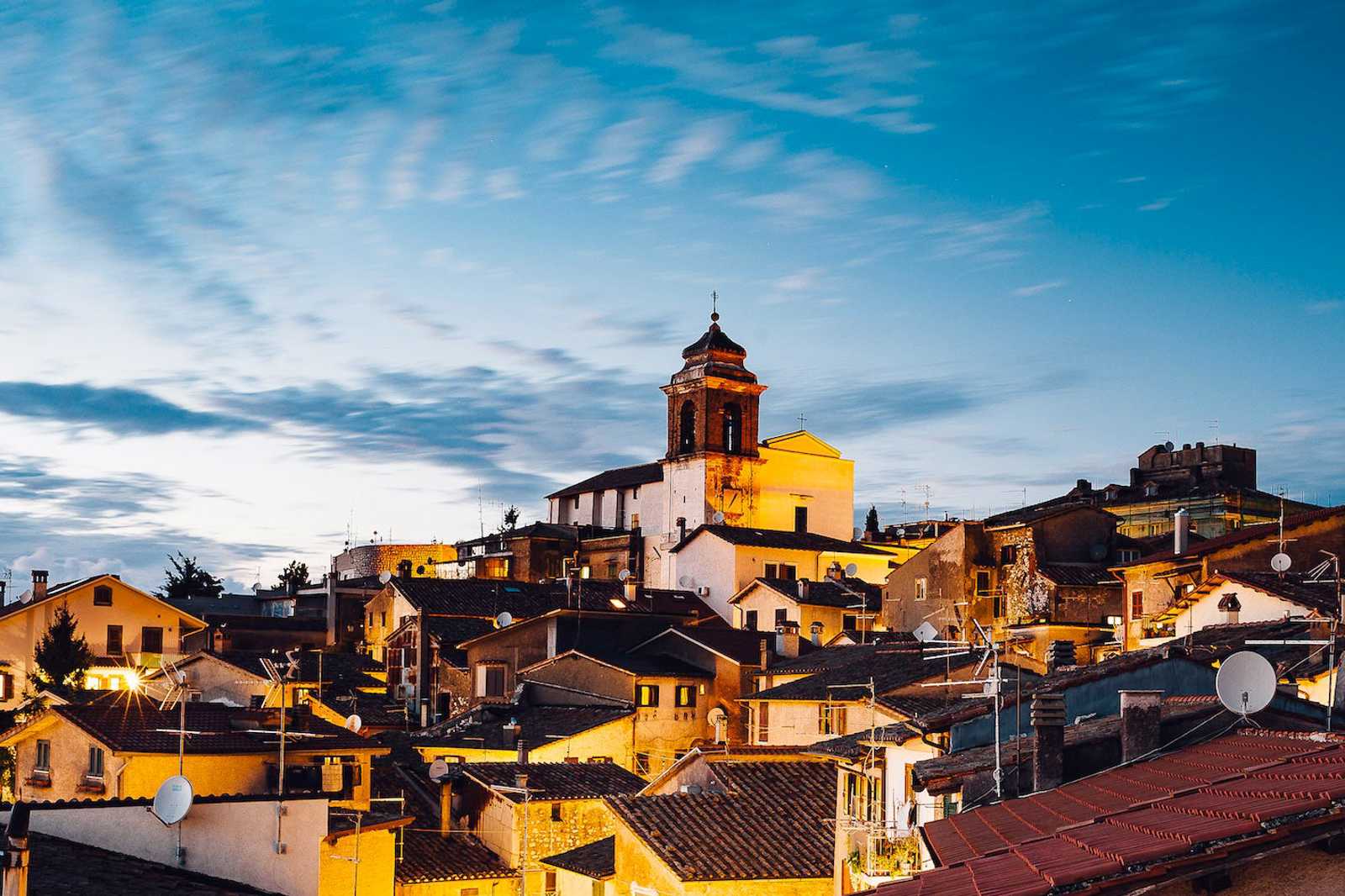
- Economía
- Familias
- Historia
- Fotos
Castel San Pietro Romano was the shooting location for Italian films like Pane, amore e gelosia (Bread, Love and Jealousy) and Pane, amore e… (Scandal in Sorrento) in the 1950s. This village near Palestrina captivated directors of the decade for its age-old atmosphere. Thanks to Museo Diffuso ('widespread museum'), the village is now a touchstone for Central Italian art, culture and excellence.
Although Castel San Pietro Romano is one of Lazio's smallest villages, it boasts spectacular views of Rome and the surrounding mountains. The historic centre features prominent buildings, like the majestic Rocca dei Colonna (Colonna Fortress), dating to the Middle Ages, Mura Ciclopiche (Cyclopean Walls), of Roman origin, and Chiesa di Santa Maria della Costa (Church of Santa Maria della Costa).
Ubicación: 00030 Castel San Pietro Romano, Italy
Mapafoto por Museo diffuso Castel San Pietro Romano (CC BY-SA 4.0) modificada
- 10
Caprarola
Explore history, culture and nature

- Economía
- Familias
- Alimentos
- Historia
- Fotos
Caprarola stands on a hill In Tuscia, not far from Lago di Vico (Lake Vico). The village's most important monument is Palazzo Farnese (Farnese Palace), dating to the 16th century. It features a distinctive pentagonal layout and large, luscious gardens. The double staircase leads to a series of elaborately decorated rooms and halls featuring frescoes by the greatest artists of the Baroque era.
In the historic centre, it's definitely worth visiting the Duomo (Cathedral) with its 2 bell towers, while in the nearby Riserva del Lago di Vico (Lake Vico Reserve), you can discover the local flora and fauna. Before leaving, why not treat yourself to some traditional hazelnut or chestnut sweets?
Ubicación: 01032 Caprarola, Italy
Mapa - 11
Orvinio
Go see the village perched on the Monti Lucretili
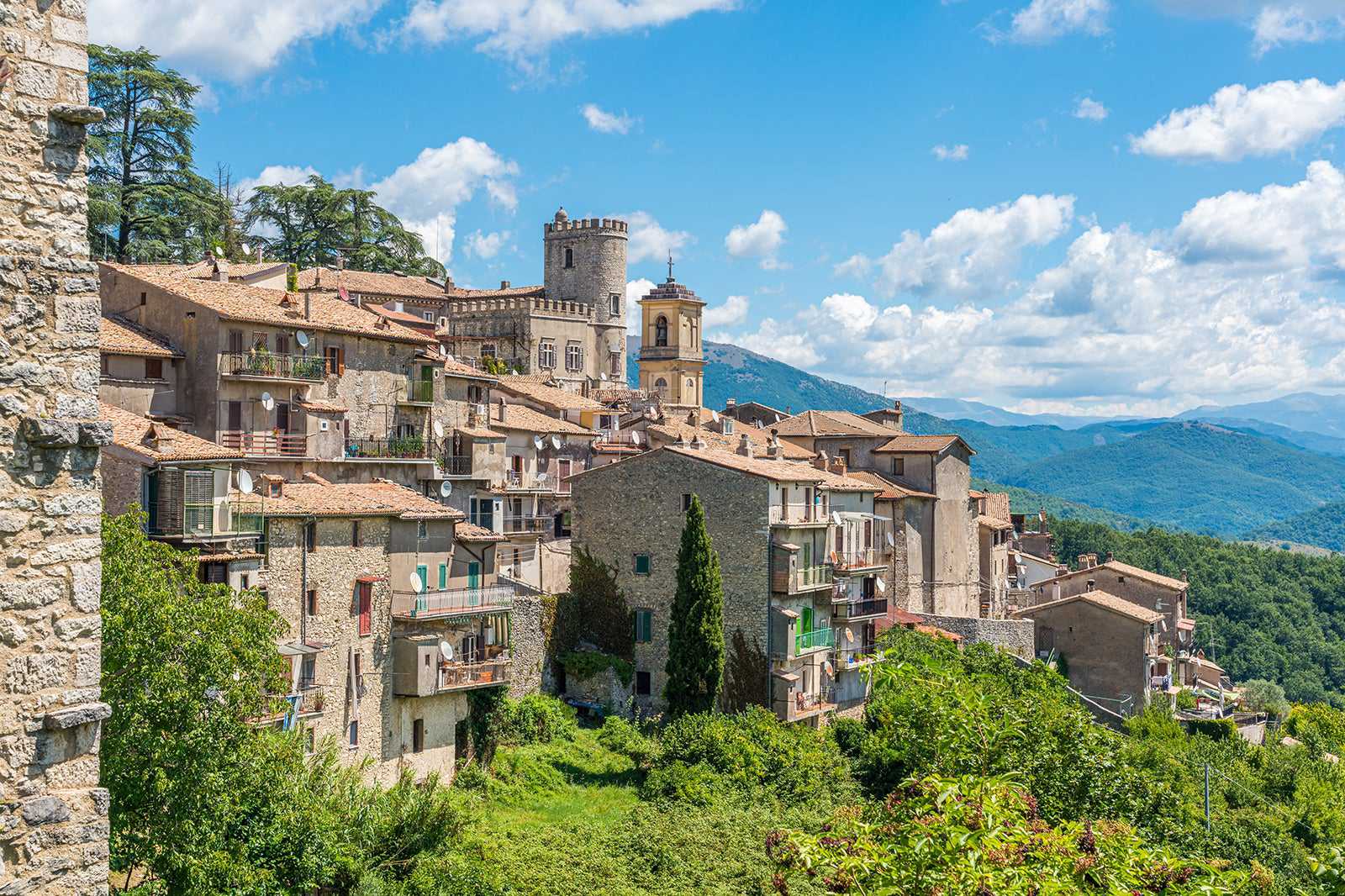
- Economía
- Familias
- Historia
- Fotos
Orvinio, known as the paese delle ginestre (town of broom trees), is a picturesque village on the peaks of the Parco Regionale Naturale dei Monti Lucretili (Regional Nature Park of Lucretili Mountains). The pretty historic centre is dominated by Castello dei marchesi Malvezzi Campeggi (Castle of the Marquis Malvezzi Campeggi), which isn't open to the public, and punctuated with small and large medieval churches, like the Chiesa di Santa Maria dei Raccomandati (Church of Santa Maria dei Raccomandati) and Chiesa di San Giacomo (Church of St James).
Orvinio is a favoured spot not just for Lazio's local holidaymakers, but also for hikers, horse riders and mountain bikers. Its culinary specialities include polentone, the local polenta.
Ubicación: 02035 Orvinio, Italy
Mapa - 12
Arpino
Visit Cicero's hometown

- Economía
- Familias
- Historia
- Fotos
In 106 BC, Arpino gifted Cicero to the world. The town is near the middle section of the Fiume Liri (Liri River) and Fiume Melfa (Melfa River), and is known locally for its rich artistic and historic heritage. It rises on undulating, low hills that are home to churches and palaces of great interest to history enthusiasts.
The town's numerous monuments include Palazzo del Cavalier d’Arpino (Cavalier d'Arpino Palace), Palazzo Municipale (Town Hall), Palazzo Quadrini (Quadrini Palace), Palazzo Sangermano (Sangermano Palace), and Castello Ladislao (Ladislao Castle), dating back to 1269. We recommend paying a visit to the nearby ghost town, Civitavecchia.
Ubicación: 03033 Arpino, Italy
Mapa - 13
Amatrice
Try <em>spaghetti all’amatriciana</em> in the town it was born

- Economía
- Familias
- Alimentos
- Historia
- Fotos
Amatrice, between Monti della Laga (Laga Mountains) and Monti Sibillini (Sibillini Mountains), is best known for creating pasta all'amatriciana (pasta with chilli, bacon, tomato and pecorino). Less known, however, is that Amatrice is located along the Cammino nelle terre mutate (‘route through changed lands’). This is made up of spots that have been affected by earthquakes but have refused to let themselves be demolished completely.
Torre Civica is one example, standing as a proud symbol that the town survived the 2016 earthquake. Don't miss the opportunity to travel a small stretch of this outdoor route, e.g. from Amatrice to the nearby Lago di Campotosto (Lake Campotosto), where you can kick back with a picnic basket filled with excellent local products.
Ubicación: 02012 Amatrice, Italy
Mapa
